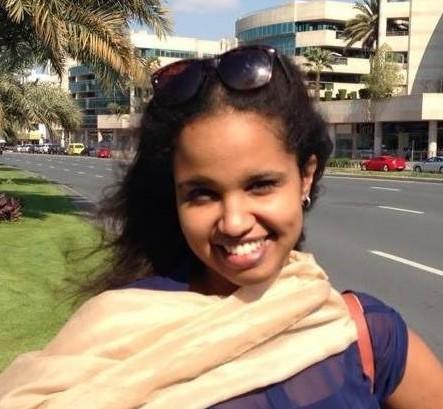The UK Khat Ban one year on: For Somali people, by Somali people – By Annisa Omar

The UK’s decision to ban Khat a year ago surprised many in the country who had not heard of the drug – let alone were aware that there was a campaign to stop its use. However, for those familiar with the cultures of the Horn of Africa and the Arabian Peninsula, and in particular Somalia and Yemen, the leafy plant Khat acts as a stimulant, commonly chewed by men.
As of June 24th 2014, Khat became classed as a class C drug and was banned in the UK. UK Home secretary Theresa May argued it was for the betterment of vulnerable communities’ health and social wellbeing, as well as concerns over the UK turning into a hub for European supply.
The ripple effects across UK Somali communities have been real and profound. No longer was it possible to boldly brandish Khat in the UK.
Arguments began proliferating in the media and public discussions that the law had been introduced too quickly and had potential negative consequences, such as pushing people to harder drugs or alcohol, damaging race relations, devastating Kenyan Khat-growing economies and even causing a loss of £2.5 million for the UK treasury.
Many argued that Theresa May decided to implement the ban without apparent evidence and against the advice of the Advisory Council on the Misuse of Drugs. The ban was portrayed simply as an encroachment on freedom pushed forward by the UK government. Somalis were thus shown as somewhat voiceless in the matter.
In actual fact, however, numerous Somali individuals and groups had been lobbying the government for many years to make Khat illegal. This part of the Khat ban story has received little mainstream media attention.
A few stories had been published. In a 2012 BBC Wales report, a young Somali youth worker, Mr Dualeh, warned that Khat should be made illegal, as he believed it was killing his community. On the eve of the ban, 29 UK-based Somali community organisations from television stations, job training centres, charities and youth groups endorsed a report titled “˜Khat Ban: Removing segregation and promoting integration’ in direct support of Theresa May’s decision.
A contributor to the report, Mohamed Ibrahim, the Chair of the London Youth Somali Forum, reported that “˜Our fight against Khat has been real for many years and we have finally won’.
Naturally, as an issue intimately affecting their own community, Somalis in the UK are more than well-placed to advise the government. As the Home Office minister Karen Bradley told the BBC, “˜We took the decision based on the strong views of the Somali community, particularly mums and wives’.
There were of course some within the community who were vocally against the ban, largely because of the business it generates and its cultural significance. However, most Somalis welcomed the ban, as can be seen by the lack of protests it generated. It appears the legislation has had a positive impact upon the lives of former Khat users, as well as benefiting public health services.
Mental health conditions such as psychosis, insomnia, paranoia, and depression have all been linked to Khat use. Physical health can also be affected, with poor appetite, mouth ulcers, and gum disease prevalent amongst users.
However, the Advisory Council on the Misuse of Drugs stated in their 2013 report that there is “˜no evidence of a causal link between Khat use and adverse medical effects’. Despite the lack of official evidence, the reality is that scores of Somalis have for decades been treated by the UK National Health Service due to Khat-related health problems. Since the ban, the numbers in London have been falling within the mental health sector, according to a number of senior NHS psychiatrists.
In the last few years, the UK mental health charity Mind has lead the way in taking steps to help those affected. This charity has set up innovative Khat rehabilitation and education projects in some UK areas.
These projects involve information about the financial losses Khat users can incur, including a scale of how many bundles of Khat one consumer might purchase over a decade. Three bundles a day at £9 over a decade equals approximately £32,400. This knowledge of cost is important for the everyday male user whose loss of income to the drug affects both him and the family members who rely on him.
Mind Support Manager Abdirashid noted that Somali male users enjoyed rehabilitation and were not substituting Khat with hard drugs or alcohol, as the media suggested.
Also, the UK media focuses greatly upon the loss of income for Kenyan Khat producers abroad. However, it was the local need to rejuvenate and integrate Somali men into UK communities and wider UK society that largely drove the ban, and thus deserves greater attention.
More fathers are present at home, working or seeking employment and in effect becoming better role models for their children. As shop owner and former user Ahmed Musa stated, “˜I always chewed Khat. It took a lot of my time, now I see my family more, especially my youngest daughter’.
There is, of course a long way to go, especially for rehabilitation, given the ban’s quick introduction compounded by government cuts to social care. However, despite the setbacks the change has been put into motion.
Ultimately, this is a law – so were there any arrests? Two arrests have been made in Cardiff, Wales. There were more arrests in London, where 36 people were arrested and 68 warned in the first six months. Of these 36 arrested, 4 people have been charged and appeared in court. A year’s police review is in process.
Police have been warned to use their discretion in enforcing the law, given its infancy. They follow a three strikes method of first issuing a warning, then a £60 spot fine for a second offence, and prosecution for the third.
As the London Metropolitan police Acting Sergeant Mike Aartsen, who coordinates the Strategic Khat Working Group, stated, “˜Khat is a low priority drug for us’. One could argue it is not the law itself but the presence of law as a deterrent that has been the success.
I remember the buying and selling of the plant in local London Somali cafes, in which predominantly older men sat to chew their purchases. Young boys and girls acted as secret delivery personnel, discreetly carrying the drug in coat pockets from one cafe or home to the next.
Boys and girls were often happy to do this task, as there was always this sense of excitement and forbidden pleasure when it came to the use of Khat. As if everyone knew deep down it was wrong, but it was too fun and tied to Somali identity to ever let it go.
Thus this positive reaction to the Khat ban reflects what we knew all along. A psychological shift within the UK Somali community appears to be underway: that Khat is illegal and should not form part of our everyday lives.
Somalis, like many other African or Asian people that have migrated to the UK in the last 60 years, have for a long time felt marginalised within UK society. The use of Khat within our community has only added to this isolation.
Annisa Omar is a British-Somali journalist and communications professional on the look out for new opportunities. Tweet her @AnnisaOmar







Despite the lack of official evidence, the reality is that scores of Somalis have for decades been treated by the UK National Health Service due to Khat-related health problems.